International Youth Day: Our Commitment to Children’s Mental Health
The 12th of August is International Youth Day, a worldwide yearly occasion to reflect upon children’s rights, as well as our responsibility in supporting their development into healthy and resilient adults. However, things are not this easy in practice: children are among the most vulnerable in our society, and they are often left helpless in difficult situations, hindering their well-being and affecting their mental health long-term.
For this year’s International Youth Day, we asked the partners of the Let’s Talk About Children project to share their commitment to children’s mental health.
Building resilience for a healthy life
CEIPES ETS, the Italian partner based in Sicily, shared how “safeguarding children’s mental health is essential for fostering resilient and empowered individuals who can thrive in their personal and educational lives.” The Sempre a Frente Fundation (Poland) also stressed the positive long-term impact of providing mental health support early on in life: “supporting children and youth mental health, empowering them, shaping their feeling of self-agency and safeguarding their development and wellbeing is vital so they could thrive as adults building responsible, resilient civil society as happy and capable humans.“
Associazione Contatto and Niguarda Hospital are working together to implement the Let’s Talk About Children approach in Milan and in the Lombardy region in Italy. When questioned about their commitment to children’s mental health, they replied without hesitation: “Children are our future, and protecting the mental health of children contributes to a healthier future society. [We] have been working for years to ensure that invisible children are seen during their childhood years and that their best qualities are nurtured for when they become adults.“
Let’s Talk About Children is implemented in Estonia by the NGO Peaasjad, which highlights how prevention and support should always be tailored to the specific needs of the individual, allowing them to find the right tools for their own situations without feeling pressured to accept solutions that do not fit their needs and expectations: “Mental health issues can either be prevented or the health damage can be reduced through early intervention. Everyone has the ability to improve their well-being. It is just a matter of finding the right tools.“
The National Center for Mental Health and Action Against Drugs ((CNSMLA, Romania) decides to focus on the strengths rather than the obstacles that young people can count on. Their work is, therefore, making sure that children and their families are aware of the resources they can find within themselves, and develop tools to build on those sustainably: “We believe that young people have strengths that can easily be overlooked. Supporting them and their families to identify and further develop these strengths, can improve mental health and family dynamics. And “Let’s talk about children” gives us the tools to uncover the existing resilience resources specific to each family.“
Children and adults: a necessary dialogue
The Centre for Mental Health Care Development (Czech Republic) touches upon another key aspect of the Let’s Talk About Children approach: the impact that parents’ mental health can have on their children. The Czech organisation, who has a long-standing commitment to promoting community-based care for adults with mental health issues, shares: “We believe that positive support of parenting competencies and the whole family, including children, helps to promote mental wellbeing and prevent the development of difficulties.”
The University of Coimbra in Portugal also points out how “Working for children’s mental health is crucial to breaking the intergenerational cycle of adverse childhood experiences within families.” All across Europe, the Let’s Talk About Children’s partners share the same vision: putting children at the centre is an investment for a healthier future. MIELI Mental Health Finland mentions: “Children and young people are the future of Finland. The foundation of mental health is built during childhood and MIELI is committed to promoting the well-being and mental health of all through its actions and to influence political decision-making.”
Influencing policy-making through advocacy is a crucial part of the work of our European partners. It is our responsibility to ensure that the European Institutions prioritise children’s well-being, and the University of Turku ensures that these requests are backed by proper research: “Working for children’s mental health is important for the University of Turku in order to find safe and most effective ways to support children’s well-being and prevent mental health issues. We contribute to this goal by conducting high-quality intervention research.“
Let’s Talk About Children’s long-term vision
In conclusion, Let’s Talk About Children is prioritising youth’s mental health by tailoring each intervention to the cultural, social and personal needs of their audiences. The National and Kapodistrian University of Athens summarises their work and the one of the whole consortium with precise and impactful words:
“Working on children’s mental health using a holistic and community-based approach is crucial for NKUA, as it supports the foundation of their well-being and future resilience. By combining community-based interventions with research on early prevention in children and their families, we aim to integrate mental health initiatives within educational settings and raise awareness in both clinical and general populations. Our overall goal is to foster supportive environments for children that address their complex needs and contribute to long-term positive outcomes in their socio-emotional development and mental health.“
